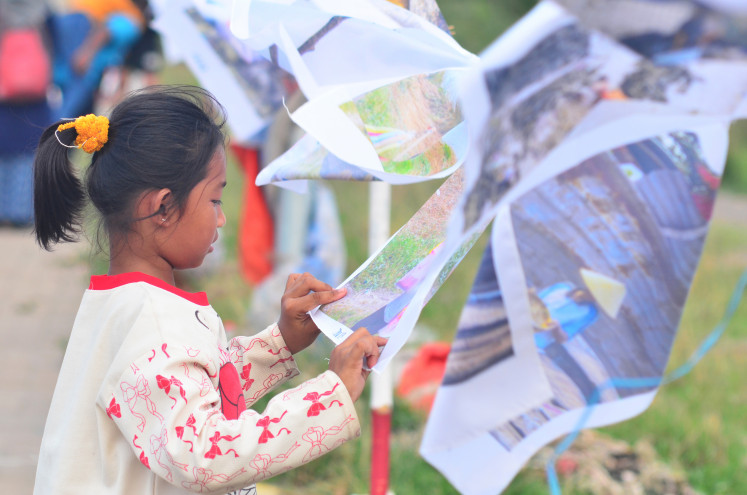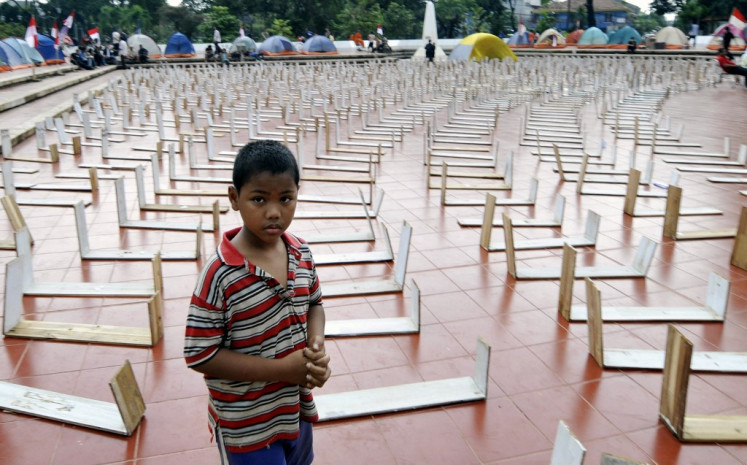Popular Reads
Top Results
Can't find what you're looking for?
View all search resultsPopular Reads
Top Results
Can't find what you're looking for?
View all search resultsHow university communities are taking care of strays
The seemingly endless number of stray cats and dogs has moved students and employees from various Indonesian campuses to established animal welfare communities.
Change text size
Gift Premium Articles
to Anyone
T
he main campus of the University of Indonesia (UI) in Depok, West Java, is a large area that has become a home for hundreds of stray cats and dogs. So much so that the campus’ animal lovers have established communities to look after them.
In 2017, a number of employees at the School of Social and Political Science (FISIP) established an animal welfare group called FISIP UI Peduli Hewan (FISIP UI Cares for Animals). A year later, a cat lover community named Sastra Kucing (Cat Literature) was created by students from the School of Humanities.
Even so, the effort to become an animal-friendly campus has never been easy. In mid-2019, UI's Environmental and Occupational Safety and Health Technical Unit (UPT K3L) rounded up all the stray cats and dogs and took them to an animal health center (Puskewan) in Ragunan, South Jakarta.
This incident sparked concern from animal lovers and motivated them to establish UI Peduli Hewan (UI Cares for Animals). For Renny Marina, the collective’s cofounder, the capture of the animals was an opportunity to strengthen solidarity among the zoophilists from various schools around the campus.
“Before the incident, I had created a WhatsApp group comprised of people working at UI’s administration center. Not long after, I invited other people [to the WhatsApp group] to discuss how to solve the problem. Eventually, we managed to find people who were willing to adopt those animals,” said Renny.
A group of animal lovers also exists at Gadjah Mada University (UGM). Recent geography graduate Damar Paramananda explained that the UGM community of cat lovers, Kucing UGM (UGM Cats) started out as an Instagram account created by two students from the School of Agricultural Technology in 2017.
“Initially, the Instagram account was created for the sole purpose of uploading pictures of cats living on the campus,” said the 23-year-old cofounder of Kucing UGM and the head of the organization.
True passion: Gadjah Mada University (UGM) graduate Damar Paramananda still goes to the campus to feed strays. (JP/ Wulan Kusuma Wardhani)“I sent messages to the account, asking the administrators to meet up with me. Then, we started feeding, rescuing and sterilizing cats in September 2018.”
Originally started as a personal initiative, Kucing UGM has transformed into a community after its first member recruitment in August 2019. Currently, it has 206 members consisting of students from the different schools at UGM.
Not everyone’s furry friend
These animal lovers realize that not everyone shares their passion. Damar said the community faced constant challenges from certain sections within their own campus.
“In certain schools, the deans oppose the presence of cats. [That’s why] they relocate the cats to other schools,” he said.
To counter disapproval over the presence of animals at the university, Renny underlined the importance of educating people about animal welfare issues.
“Every time we walk around to feed [the animals] on the street, we inform people that we get the animals neutered [and spayed] to prevent them from breeding excessively,” she said.
The COVID-19 outbreak has become another challenge for animal lovers, mainly because of campus entry restrictions. Damar explained that before the pandemic, the members of Kucing UGM used to feed cats every Thursday. Now, they only do it once a month.
Read also: Talking to cats? The rise of the ‘pet communicator’
Activities at the Bandung Institute of Technology (ITB) have also been limited since mid-March 2020. Shelvi, a 27-year-old master's degree student who asked to be identified by her first name only, said restriction inspired ailurophiles to build a community called ITB Streetfeeding and raise money to perform their activities.
“They felt pity for the starving cats. The cats’ main source of food has depleted [because of the pandemic],” Shelvi said. Prior to the pandemic, campus employees and students would feed them enough food.
Due to restrictions, cats could only be fed from outside the campus' fence. Syifa, 27, a former student and the current treasurer of ITB Streetfeeding, said it took a lot of money to provide food for the cats.
Feline friends: Bandung Institute of Technology (ITB) student Shelvi feeds stray cats. (JP/Nadya Tsuraya)“Every month, we spend roughly Rp 3 million [US$210.38] on food and veterinary care, but this doesn’t include neutering fees,” she said.
When Syifa was asked if the group had ever run out of money, she replied, "Throughout my time as treasurer, there has always been a way to receive donations. For example, we sell calendars. So, we've never been tight on money."
Not cheap
Restrictions at UI's campus are no longer as strict as they were a year ago. UI Peduli Hewan members are now able to regularly feed the campus strays every Tuesday and Friday. Given the vast number of animals — nine dogs and approximately 300 cats — and the vastness of the campus area, a large amount of money is needed.
"Every time we engage in street-feeding, we spend Rp 750,000 on food or a total of Rp 6 million per month. Other costs can’t be predicted as they depend on how many animals are rescued and neutered,” said Renny.
Feeding time: A University of Indonesia (UI) student feeds a stray cat. (JP/ Wulan Kusuma Wardhani)UI Peduli Hewan still pays the monthly cost of renting a house to accommodate animals that must recover from various health issues. Occasionally, the community owes veterinary clinics when it starts to run out of money. Through social media, the group always announces its need for financial help and often receives donations.
Nonetheless, there are people who take advantage of the animal lovers' kindness and abandon their pets on campus.
"This is a dilemma. When we make an announcement, there is always the risk that someone would abandon their unwanted animals in the area. This has happened many times, but [when] we need money, we have no choice but to make it publicly known,” Renny said.

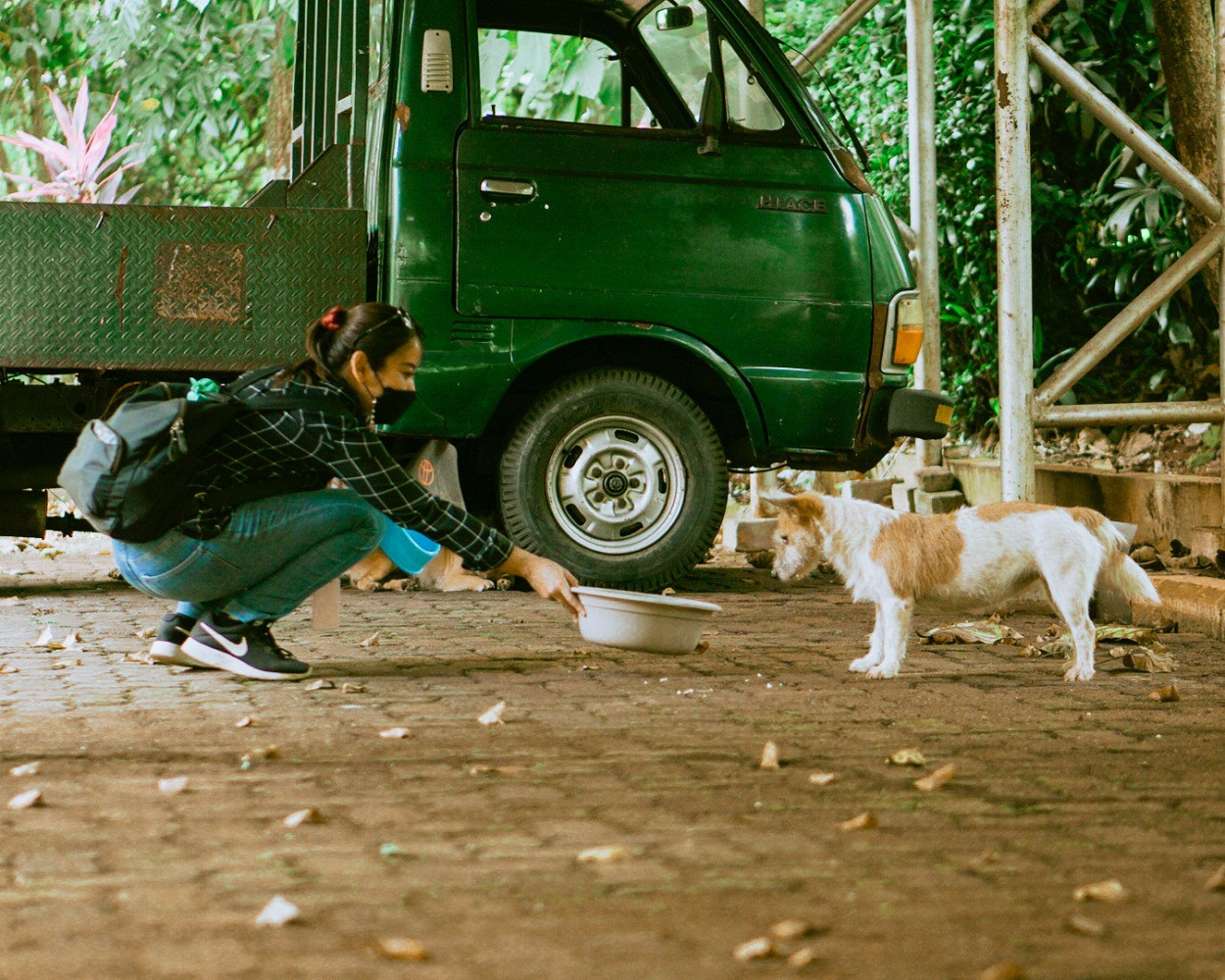

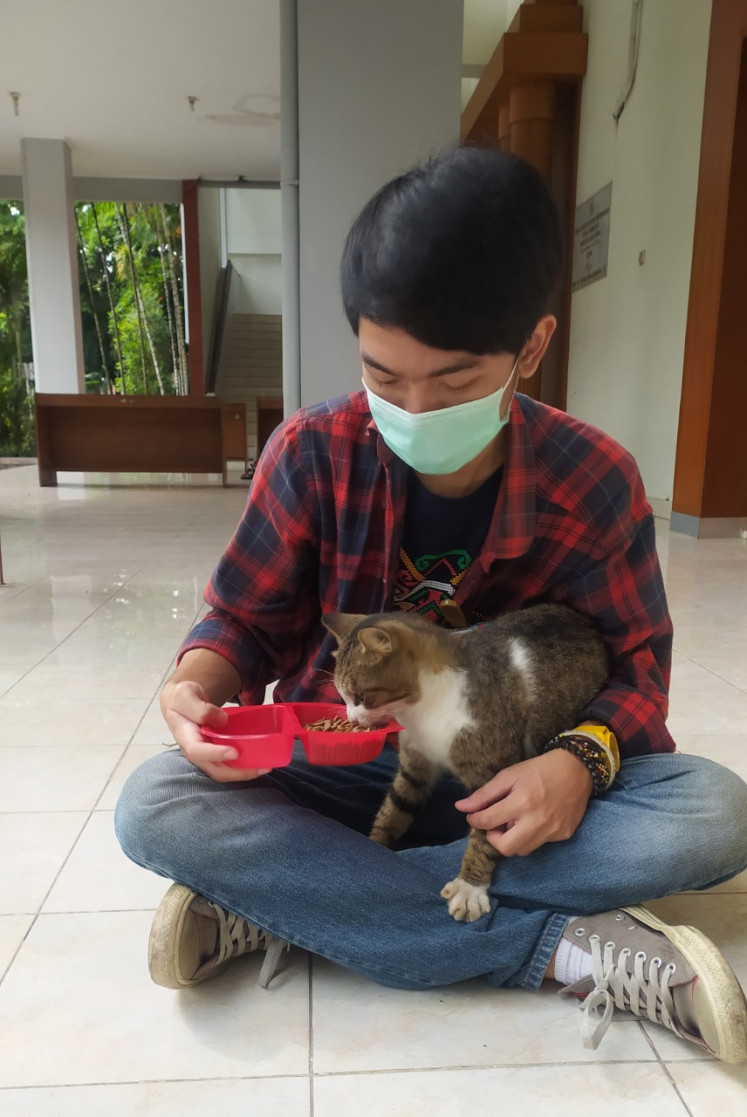
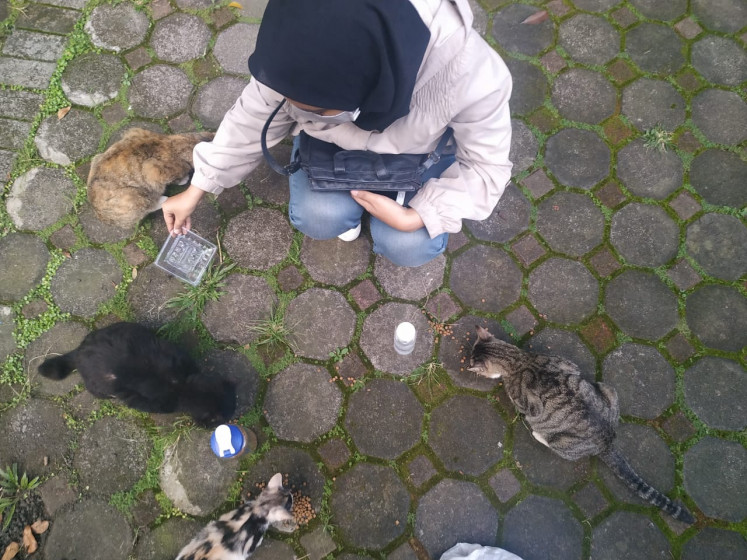
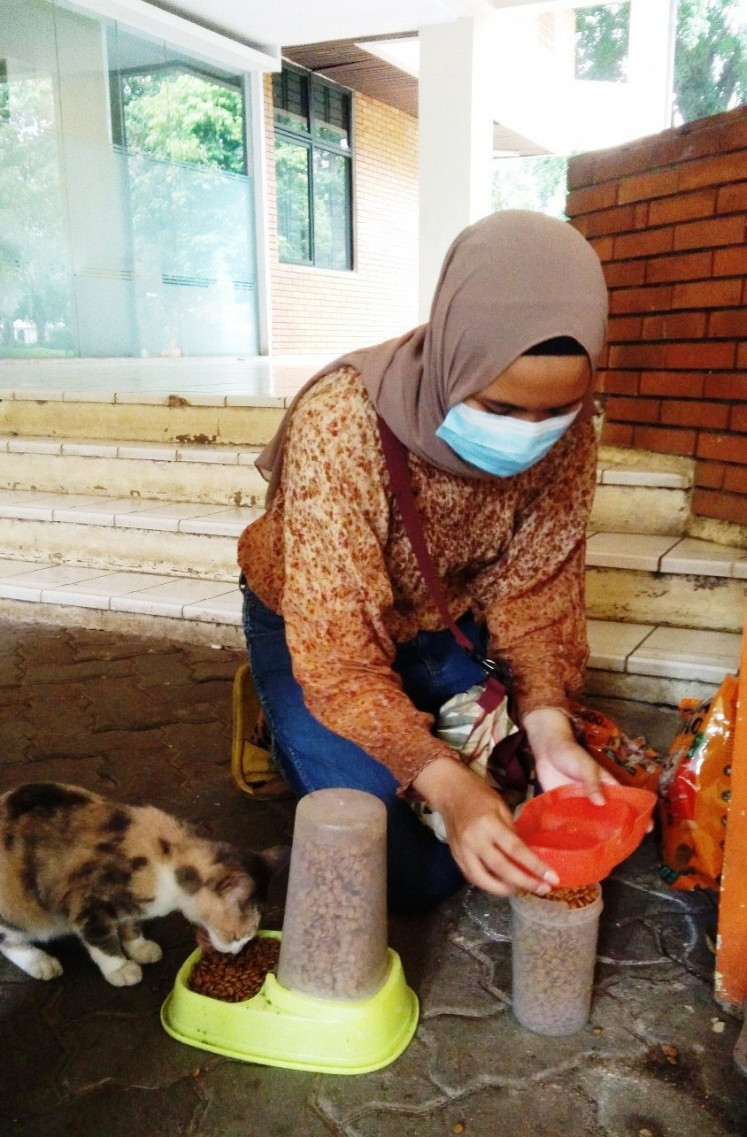



![Let it out: Japanese rocker Hyde holds a solo concert, billed as the Hyde [Inside] Live 2025 World Tour in Jakarta, on Nov. 1, 2025, at Tennis Indoor Senayan in Central Jakarta.
(Courtesy of Sound Rhythm and Mataloka Live)](https://img.jakpost.net/c/2025/11/05/2025_11_05_168574_1762306300._medium.jpg)

